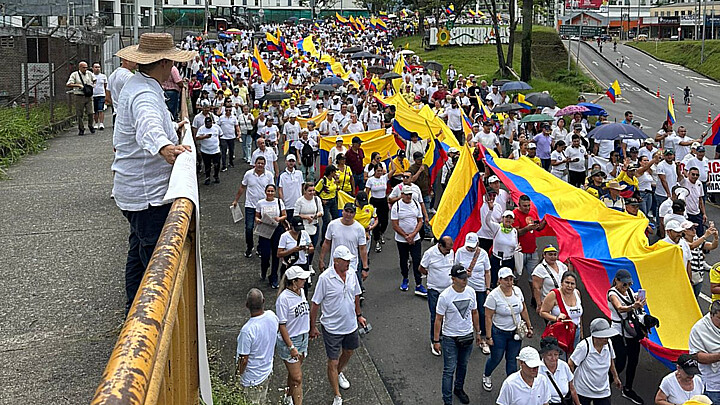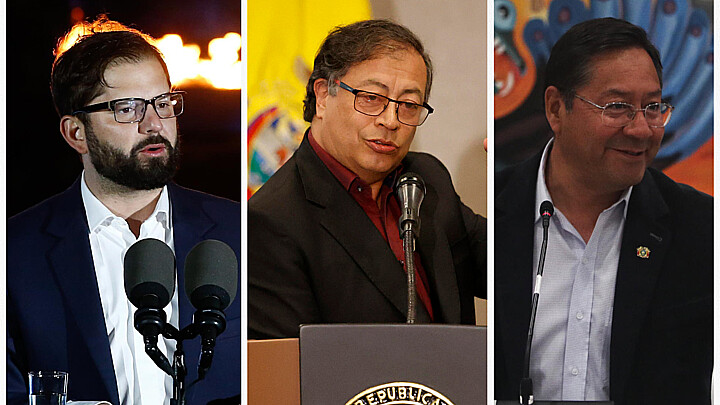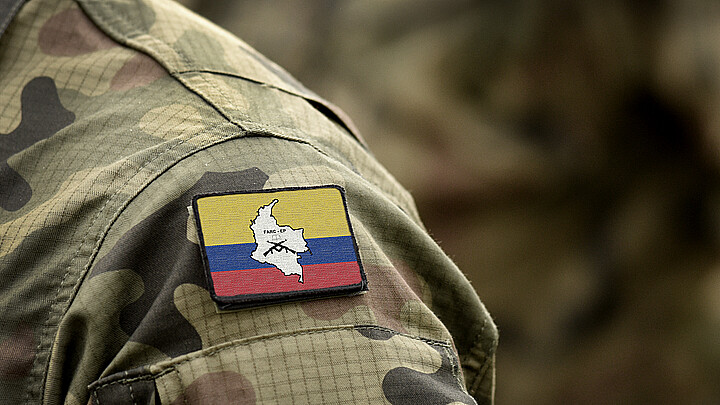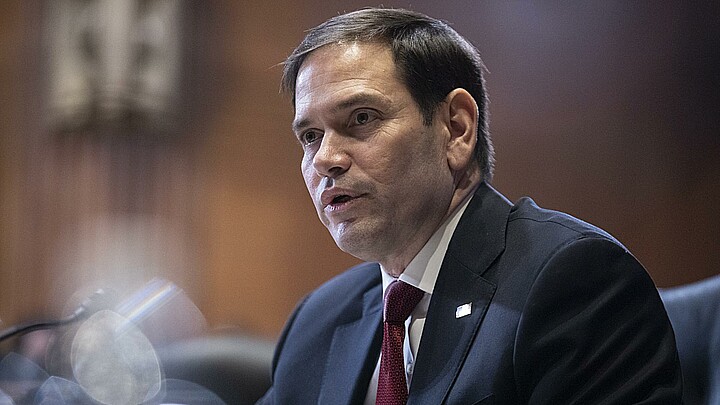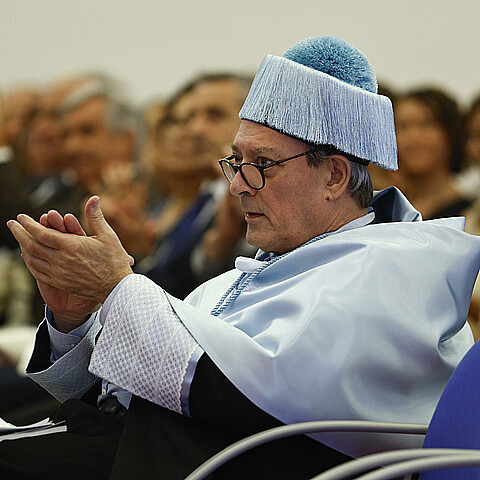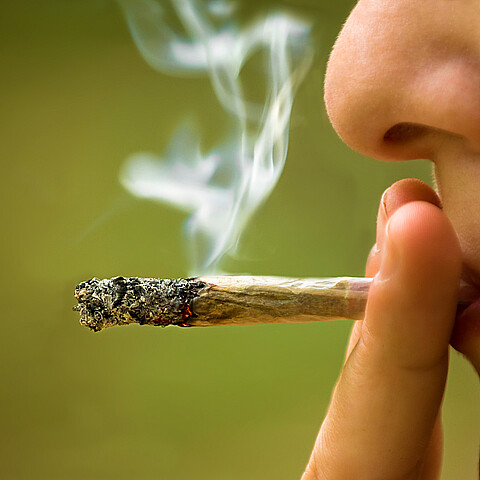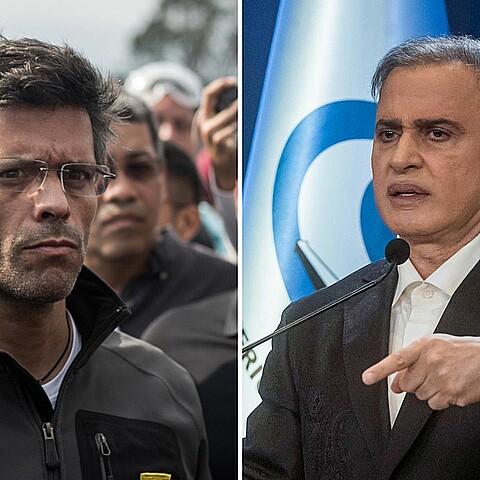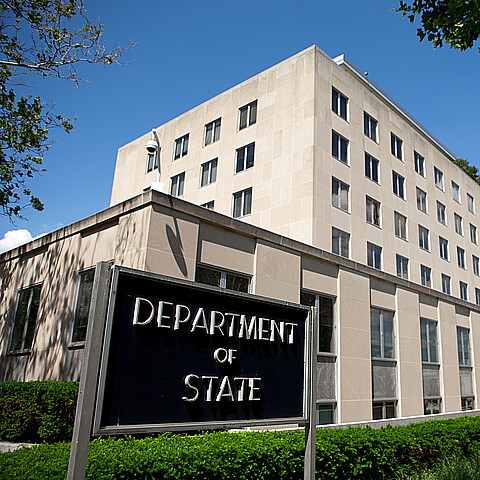Politics
Leftist and former M-19 guerrilla Gustavo Petro wins Colombian presidency without majority in Senate
Gustavo Petro won by a tight margin with just a little more than 50.5% of just more than 700,000 votes against 77-year old conservative businessman Rodolfo Hernandez
June 19, 2022 8:30pm
Updated: June 20, 2022 12:40am
Former M-19 Marxist rebel Gustavo Petro is the apparent victor in Sunday’s Colombian presidential election. His victory marks the first time Colombia has had a leftist leader in what has been an otherwise pro-free market Latin American country.
Gustavo won by a tight margin with just a little more than 50.5% of just more than 700,000 votes against 77-year old conservative businessman Rodolfo Hernandez.
In the pre-count and with 99.84% of the polling stations informed, Petro obtained 11,276,994 votes, equivalent to 50.49%, while his rival, businessman Rodolfo Hernández, from the Anti-Corruption Governors League, reached 10,558,665. votes (47.26%).
Petro's advantage over Hernández is 718,329 votes, is equivalent to 3.24%. This number is higher than what the polls of voting intention predicted, even projecting a technical tie by less than a percentage point of difference.
For the moment however, Gustavo is appears to have emerged victorious.
“Let's celebrate the first popular victory. May so many sufferings be cushioned in the joy that today floods the heart of the homeland," Petro tweeted on social media Sunday night.
Colombia’s outgoing president, Ivan Duque called Petro to congratulate him said the two “agreed to meet in the coming days to initiate a harmonious, institutional and transparent transition.”
Duque was barred due to new four-year presidential term limits installed in Colombia in 2015. Although Petro’s political party currently holds the most seats in the country’s Senate, it does not hold an overall majority, a fact that may prove challenging to the incoming chief executive.
Recent polling found that Colombians of different class and status had contrasting perceptions about the current government. Some felt that under Duque’s tenure the country saw economic growth while other Colombians had a split view of his achievements.
While the wealthy felt Duque’s presidency was a success, others less fortunate complained about Colombia’s declining economic conditions which partially suffered due to regional downturn from the COVID-19 pandemic.
A recent Gallup poll reported that the majority of poor Colombians felt the economy was getting worse while the richest 20% did not.
While 56% of the poorest 20% of Colombians say local economies getting worse, 39% of the richest 20% say local economies are getting worse. Eighty percent were able to agree that corruption was widespread in the government.
Petro’s left wing policies support raising corporate taxes and subsidies for the underclass and poor, which most likely appealed to the 56% who felt the economy was getting worse.
The Colombian leftist was born April 19, 1960 in the north Colombian town of Ciénaga de Oro. He was raised in a Catholic household. Despite saying he has felt he had a vision from God about liberation theology to enter politics has reportedly also said he is not sure about God’s existence.
He joined the Marxist 19th of April Movement (M19) at a young age. Although the organization was purportedly founded in 1974 to protest fraudulent elections it quickly turned far left in a second wave of Marxist movements that were inspired by Fidel Castro’s communist revolution in Cuba.
M-19 was notoriously known for engaging in unlawful and violent activities including kidnappings. Petro has denied involvement in such activities and instead said his personal role was more centered around lawful, pro-democracy activism. But there are questions surrounding his claims.
He studied economics and human rights at two different universities in Belgium and Spain, but did not graduate from either school. From 1984-1986 he served as a councilman in the city of Zipaquirá.
During that time he was arrested by police in 1985 for reportedly illegally concealing weapons, an incident that occurred just before M19 killed 98 people in an attempted insurrection at Colombia’s Supreme Court. Those deaths included 12 Colombian magistrate judges.
When Petro was finally released in 1987 he had served 18 months in a military prison. He has said the experience behind bars was an awakening for him that violent activism was not a solution and vowed to try and change the system internally.
After M-19 experienced some fallout, some of its former members including Petro founded a new political party known as the M-19 Democratic Alliance, and the group was able to win some seats in 1991 in the Chamber of Representatives.
In 2002, Petro successfully ran for office as a member of his own small party, Vía Alterna, and won a seat in the Chamber as a representative of Bogotá. He then created a coalition with other far left figures. Four years later in 2006, Petro won a seat in the Colombian Senate.
Before his presidential victory on Sunday, Petro, 62, failed twice in two separate presidential bids in 2010 and 2018 as he has traditionally been seen as a radical leftist.
In his most recent campaign, the former M-19 campaigned largely by promising to change the current policies President Iván Duque and trying to assure voters he was not too far left radical and instead just a progressive.
In April Gustavo signed a commitment not to confiscate any private property and reached out to moderates for potential cabinet positions to quell fears. He also used the press to publicize his connections in the U.S. Congress with the Congressional Progressive Caucus, a group of legislators considered to be far left by American standards.
He also campaigned on the streets to convince Colombians he was in touch with the people and promoted these visits on social media.
Still his critics have said his views are embedded in academic leftism and not practical.
Gustavo’s victory comes in the wake of a pink tide washing across Latin America in Chile, Honduras, Mexico and Peru.
Many analysts feel the real test for the region will occur in October when the Brazilian presidential race takes off between conservative incumbent Jair Bolsanaro and leftist candidate Luiz Inácio Lula da Silva.

